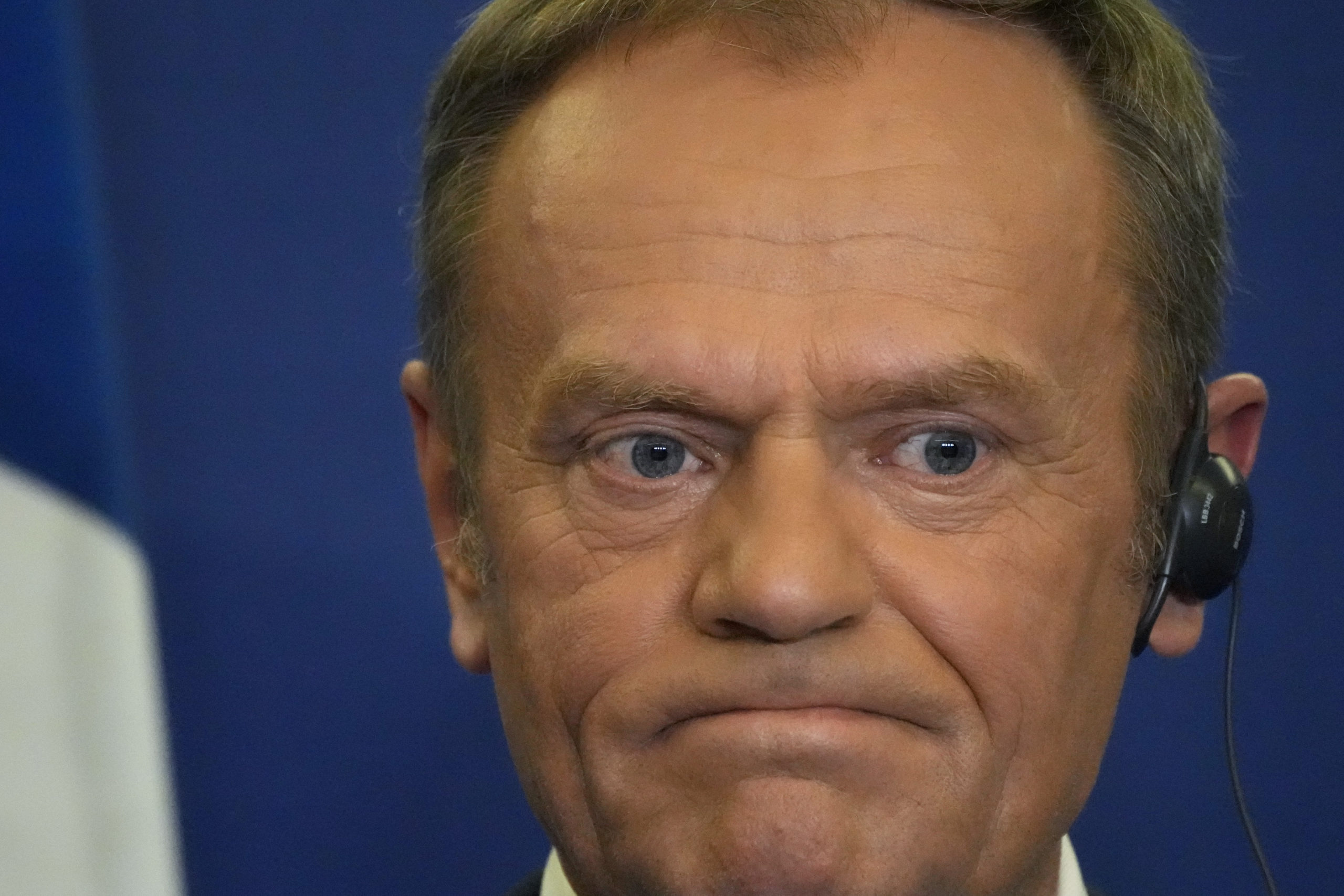WARSAW, Poland (AP) — The leader of Poland’s largest opposition party on Tuesday called on the country’s ruling party to fully clarify the facts surrounding an eight-year-old scandal involving the illegal recordings of top politicians and coal imports from Russia.
Donald Tusk said it has long been clear that Russia was involved in the episode, but that a parliamentary investigative commission was needed to determine the scale of Russian interference and to what extent any Poles collaborated with Russian intelligence services.
The wiretapping and publication of private conversations of leaders from the world of politics and business created a scandal in 2014 that damaged the standing of Tusk’s pro-European party, Civic Platform, and helped the ruling populist Law and Justice party win power the following year.
Tusk argued at a news conference in Warsaw that the affair cast a shadow over the current right-wing government because of an impression that it came to power with the help of Russian interference.
Addressing ruling party leader Jaroslaw Kaczynski, Tusk said: “Mr. Kaczynski, it is in the interest of Poland, of public opinion, but also in the interest of you and your party, that this disturbing ambiguity, this disturbing shadow hanging over your governments should not remain.”
“I am calling for the establishment of a parliamentary investigative committee so that no one in Poland can speculate that Law and Justice’s power was in fact installed by the Russian services,” Tusk said. “Today such guesses are valid.”
A Polish businessman, Marek Falenta, was convicted and sentenced to 2½ years in prison for organizing the illegal recordings in Warsaw restaurants, while two waiters were also convicted.
At the time of the recordings, Falenta owed millions of dollars to a Russian coal company linked to President Vladimir Putin. His business interests were hurt by plans by the Civic Platform-led government to block Russian coal imports.
The matter returned to public debate this week after Poland’s edition of Newsweek published a report citing the testimony a witness gave to Gdansk prosecutors in 2021. The witness, a former business partner of Falenta identified only as Marcin W., said in the testimony cited by Newsweek that the illegal recordings had been sold to Russian intelligence operatives before they were were published in Polish magazines starting in 2014.
After Law and Justice took power, Poland increased its imports of Russian coal, although blocked them this year in reaction to Russia’s full-scale invasion of Ukraine.
The investigative journalist who wrote the article, Grzegorz Rzeczkowski, said that prosecutors in Poland were investigating the financial and business aspects of the case, but were “completely ignoring the espionage thread.”
Justice Minister Zbigniew Ziobro, who is also the prosecutor general, said that Tusk’s statements were untrue and that the the national prosecutor’s office would publish Marcin W.’s testimony on its website Wednesday.
“This disclosure is important and will lead to the conclusion that the prosecutor’s office is not acting in this case for political reasons, but is explaining the matter in a manner free from political motivations,” Ziobro said.
A day earlier Ziobro said that if Russian intelligence services had a role in the recordings, then it was ultimately compromising for Tusk, who governed Poland as prime minister from 2007-2014, because it shows that Poland’s own security services “were so weak that the Russians could act freely here.”
Prime Minister Mateusz Morawiecki accused Tusk of creating “completely false scenarios” in order to improve his own reputation.
Tusk argued at the news conference in Warsaw that Poland had become far too dependent on Russian coal imports in the early years of the Law and Justice government, a matter of consequence now as Poland faces a coal shortage amid a larger energy crisis.

